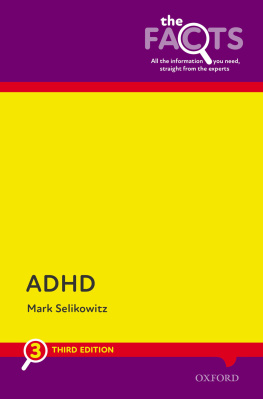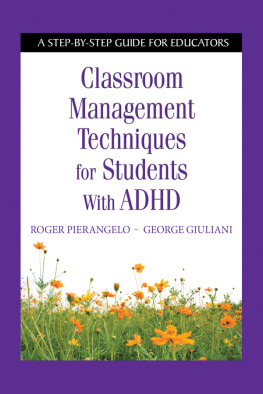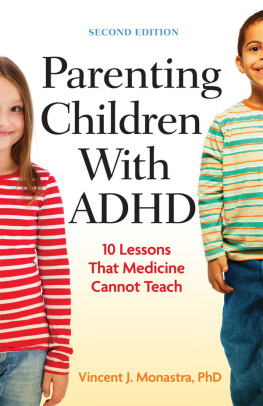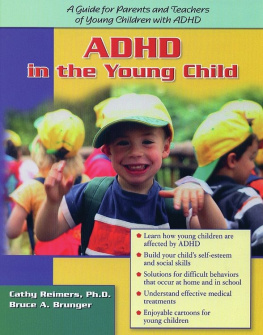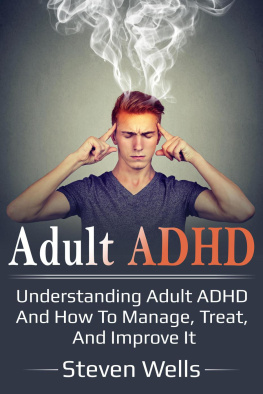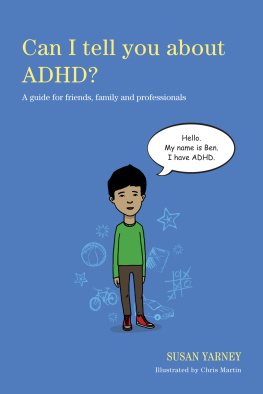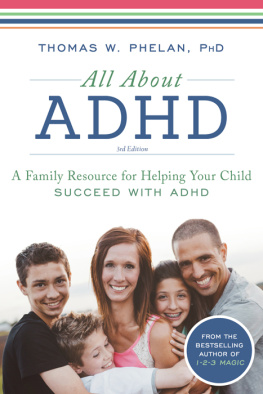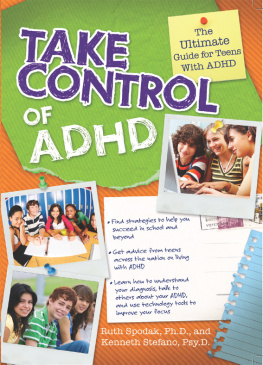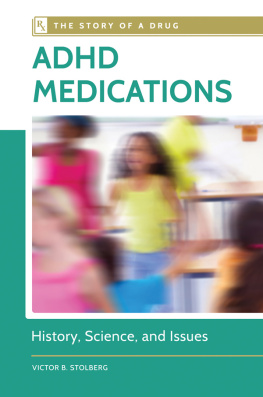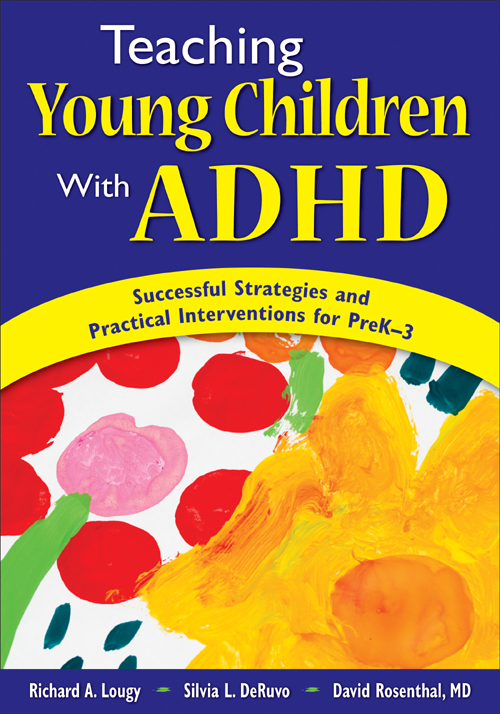I give special dedication and remembrance to Mary Jo Thurston, Reading Specialist and Special Education teacher, whose love and dedication to children will be remembered by all who knew her.
Richard A. Lougy
To Fred, the one who shares my life adventure, for all your love and undying support, and to Rachel and David for waiting patiently while I have dealt with the needs of other children. To my parents, Karl and Rose, who gave me everything I needed.
Silvia L. DeRuvo
To Marci and Alex, with love and gratitude.
David Rosenthal

Copyright 2007 by Corwin Press
All rights reserved. When forms and sample documents are included, their use is authorized only by educators, local school sites, and/or noncommercial or nonprofit entities who have purchased the book. Except for that usage, no part of this book may be reproduced or utilized in any form or by any means, electronic or mechanical, including photocopying, recording, or by any information storage and retrieval system, without permission in writing from the publisher.

For information:

Corwin Press
A Sage Publications Company
2455 Teller Road
Thousand Oaks, California 91320
www.corwinpress.com
Sage Publications Ltd.
1 Olivers Yard
55 City Road
London EC1Y 1SP
United Kingdom
Sage Publications India Pvt. Ltd
B 1/I 1 Mohan Cooperative Industrial Area
Mathura Road, New Delhi 110 044
India
Sage Publications Asia-Pacific Pte Ltd
33 Pekin Street #02-01
Far East Square
Singapore 048763
Printed in the United States of America
Library of Congress Cataloging-in-Publication Data
Lougy, Richard A., 1944
Teaching young children with ADHD : successful strategies and practical interventions for preK-3 / Richard A. Lougy, Silvia L. DeRuvo, and David Rosenthal.
p. cm.
Includes bibliographical references and index.
ISBN-13: 978-1-4129-4159-4 (cloth)
ISBN-13: 978-1-4129-4160-0 (pbk.)
1. Attention-deficit-disordered childrenEducation. 2. Attention-deficit hyperactivity disorder. 3. Early childhood education. I. DeRuvo, Silvia L. II. Rosenthal, David, 1958- III. Title.
LC4713.2.L68 2007
371.94dc22
2006034838
This book is printed on acid-free paper.
07 08 09 10 11 10 9 8 7 6 5 4 3 2 1

| Acquisitions Editor: | Stacy Wagner |
| Editorial Assistant: | Joanna Coelho |
| Production Editor: | Catherine M. Chilton |
| Copy Editor: | Julie Gwin |
| Typesetter: | C&M Digitals (P) Ltd. |
| Proofreader: | Doris Hus |
| Indexer: | Sheila Bodell |
| Cover Designer: | Monique Hahn |
| Graphic Designer: | Lisa Miller |
T he arrival of this book on ADHD strategies for teachers of young children (ages 38) is very timely. Research points to the need for a range of strategies and services for preventing and addressing challenging behavior, including developmentally appropriate environments and teaching approaches that promote childrens social-emotional and communication development. Social-emotional competence during the early childhood years is predictive of positive social and school outcomes in elementary school and beyond. There is mounting evidence that children exhibiting challenging behaviors are more likely to experience peer rejection and more punitive interactions with adults and to experience problems in school.
Besides acquiring a body of knowledge and skills, children must develop positive dispositions and attitudes. Social relationships are an important context for learning. Each child has strengths and interests that contribute to the overall functioning of the group. Children who exhibit behavior challenges often do not form good social skills, judgments, or emotional control. When children have opportunities to play together, work on projects in small groups, and talk with other children and adults in a safe and nurturing environment, their own development and learning are enhanced.
So often we receive requests from the field for help regarding behavior. We hire behavior specialists to give guidance, but there can never be enough support for the early childhood teacher. This book of strategies and information on ADHD for early childhood is a gift to the field. It holds many key components, taking into account the understanding of ADHD, social development, the educational environment, strategies that build on prior knowledge and connections, modeling (both peer and adult), positive adult relationships, and the importance of the parent.
Teachers will gain knowledge and skills through this clear, easy-to-navigate book. Our role as models for children should not be underestimated. Children thrive on the interest and attention we communicate to them. We should interpret childrens disinterest, confusion, behavior, or lack of comprehension as signals that the approach we have been using is just not working. We must ask ourselves why we arent reaching the child, instead of why the child isnt getting it. Many key questions are posed for teachers to use in examining their teaching style and methods. Young children are eager and enthusiastic learners trying to understand themselves and their world. Given the opportunity, children will naturally absorb new information, make connections, and acquire the skills needed for school success. The authors point out that positive, supportive relationships are essential not only for cognitive development but also for healthy social emotional development, and that such relationships have life-long implications. Recognition that individual variation is to be not only expected but valued requires that decisions about curriculum and adult interactions with children be as individualized as possible.
Family and culture play an important role in the lives of children. Being sensitive to the needs and preferences of families is critical. In the early years, the parent is the key to understanding the child. The parent is most familiar with the childs behavior, routine, and needs. highlights the importance of the family as part of the intervention process. Strong partnerships between families and programs in which the unique strengths, concerns, and responsibilities of the family are fully recognized are necessary to the design and implementation of strategies and intervention to prevent and remediate challenging behavior. Parents are the key to the child. Opening the channels of communication with the parent helps in forming that important partnership for the child and in planning strategies. Forming relationships built on trust, respect, and empathy is one of the most important strategies for success.
The importance of accommodations and adaptations to the environment as intervention tools is discussed in detail. Successful accommodations, along with strategies to make the child feel safe and confident, are components of good teaching skills. Keeping the child the center of our practices supports good teaching for all. When these interventions and strategies are not effective in stemming challenging behaviors, further evaluation and assessment may be needed to add support for the child. There is an urgent need to identify children with challenging behaviors early in order to increase school success and decrease the escalation of more severe social and academic problems. Effective partnerships between early educators, families, and other team members can facilitate identification of the variables that trigger and maintain the challenging behavior and lead to the development and implementation of interventions that support the use of more appropriate behaviors.


